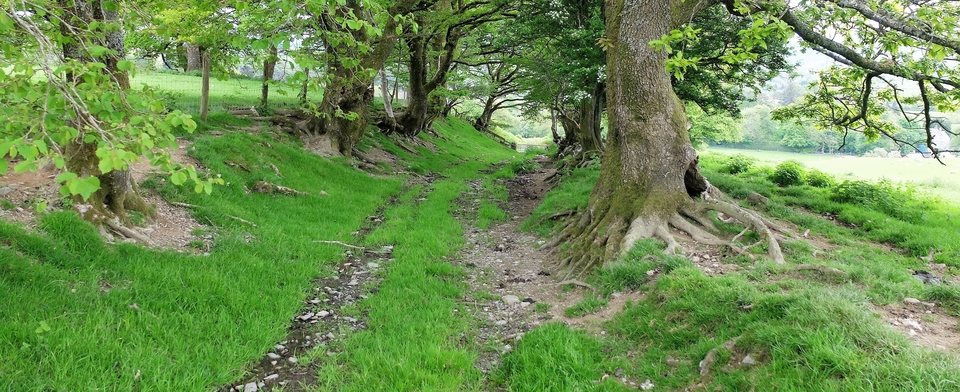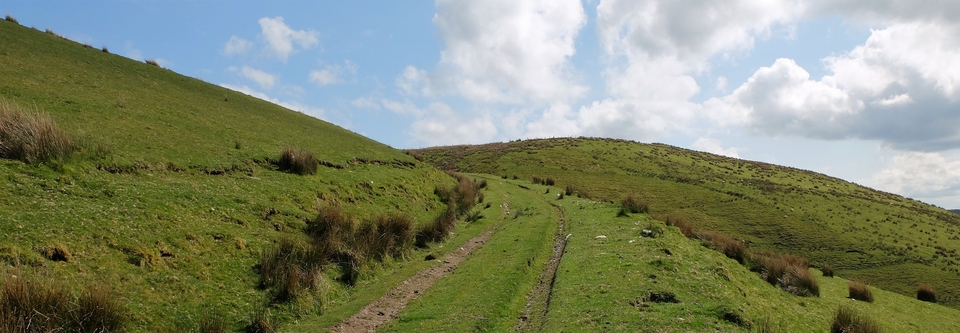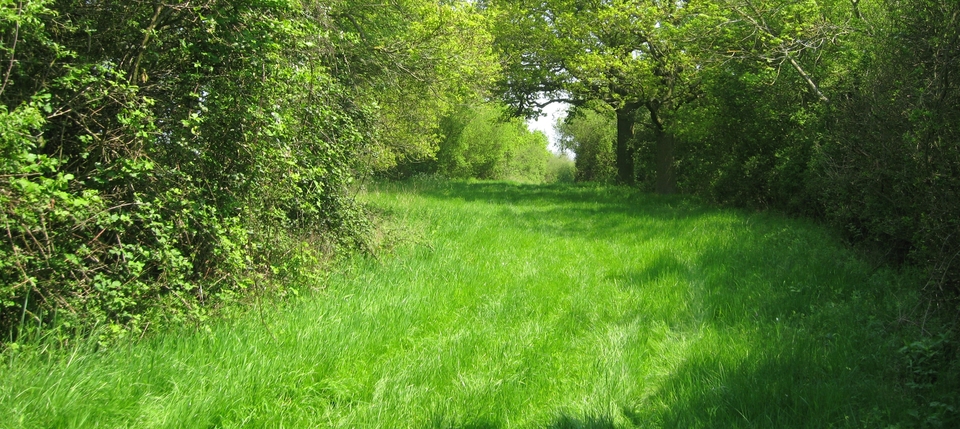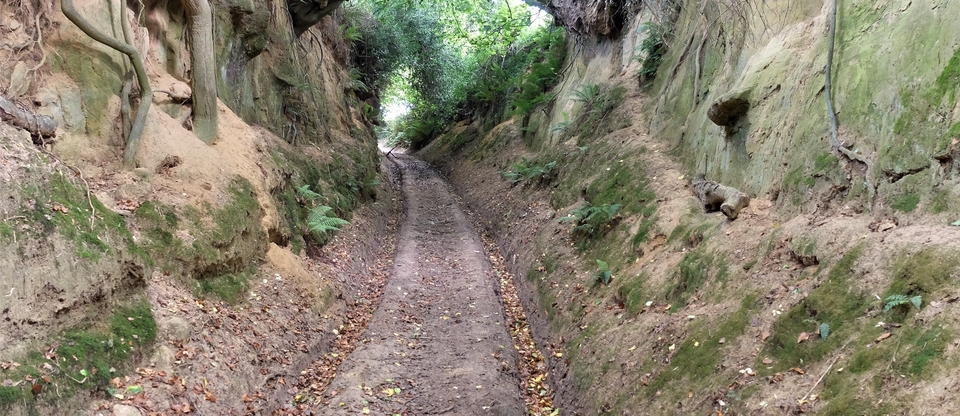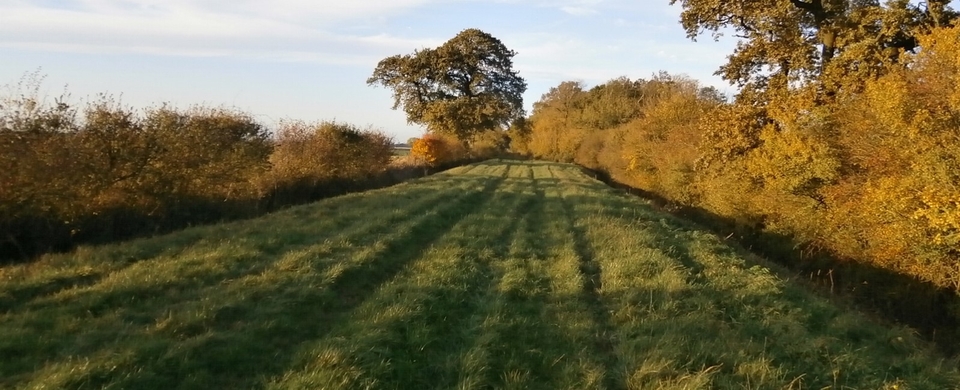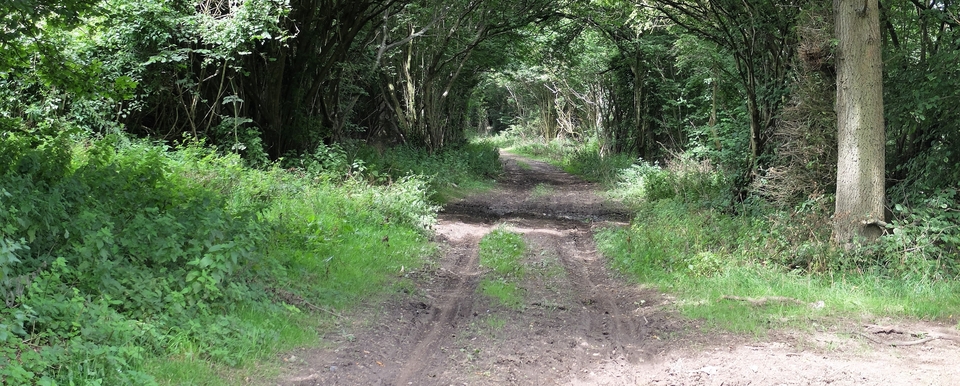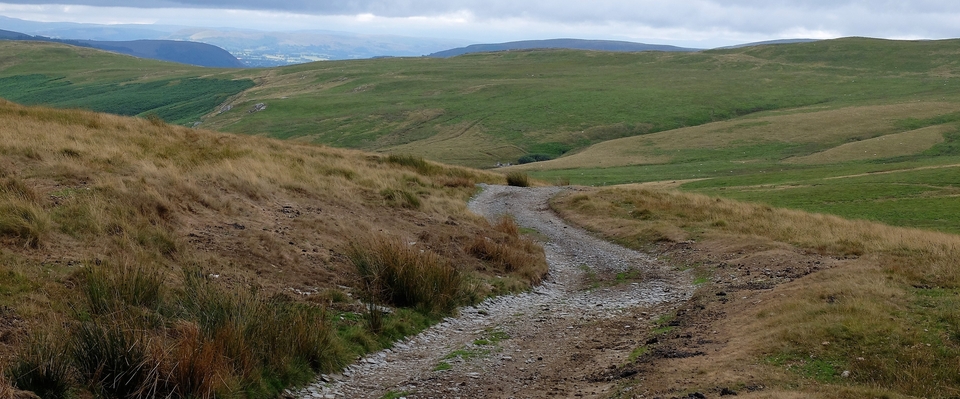Account Books
Here are the first two pages from Roderick Roderick's account book of 1838, now in the National Library of Wales in Aberystwyth.
Things to note:
- The toll-payments (see ‘gate') vary hugely. The cost of taking an ox through a turnpike was a universal charge of one halfpenny, i.e. 24 beasts to the shilling. At Llanfair-ar-y-bryn (third entry) Roderick paid 6s 2d (148 beasts); at Rhydspence (just above the tear in the page) he paid only 3s 5d, for 82 beasts. So stock was continually being bought and sold during the journey.
- ‘Cuse & nailes', meaning cow-shoes (see Background History - Expenses). A stock of these were kept, because plates would fall off during the journey. They were wrapped in bacon fat to stop the rust, and a blacksmith was hired - it wasn't a DIY job.
- The amount of beer consumed may seem alarming, but we are talking of 'sea-beer' (as given to sailors), only one and a half percent alcohol. This was cheaper than drinkable water.
- The high cost of grass, considering the owner of the field benefited from the manure.
- The route: Rhydspence Inn (shoeing station near Hay-on-Wye, just above the tear in the page) - Hereford - Ledbury - Moreton-in-Marsh ("Morton") - Buckingham - Leighton Buzzard ("Lighton") - Watford - Billericay. There he received £5 from a Mrs B. Davis and paid off the boys and himself.
A few things to puzzle over:
- Payment for overnight grass is mentioned 9 times. Add one more for the tear on page one and we have 10 nights with a day at each end. To walk from beyond Pencarreg to Billericay in 12 days was quite a feat, especially as Welshmen usually rested on the sabbath. So there must have been about five nights without an inn.
- The last stretch from Leighton Buzzard to Watford is over 25 miles, far more than he could do in a day. To Billericay it was even further.
- The usual payment to a boy was 2/= a day. Roderick seems to have got off lightly.
- RR should have made £500 - £800 from the cattle sale, so presumably the beasts had been paid for in advance, to a third party even. As a paid drover, RR should receive 3/= a day, about £1 a week. His £5 fee implies about a month on the road.
- I suspect these accounts were written retrospectively, because there aren't the variations in writing you would normally expect. (Look at the 9's in the pence column.)
- Were they written by RR himself, or did he hire an Englishman? RR's name at the bottom of the first page looks confident. I think the writing is his.
One more thing: according to Ed Grimsdale, a retired Chemistry teacher from Buckingham, we can thank toll roads for the existence of these account books. The drovers who couldn't afford the tolls didn't need to keep accounts because they would use the Commons and the Little Londons (qv) en route. So they had no extras to justify to the owners of the cattle.
